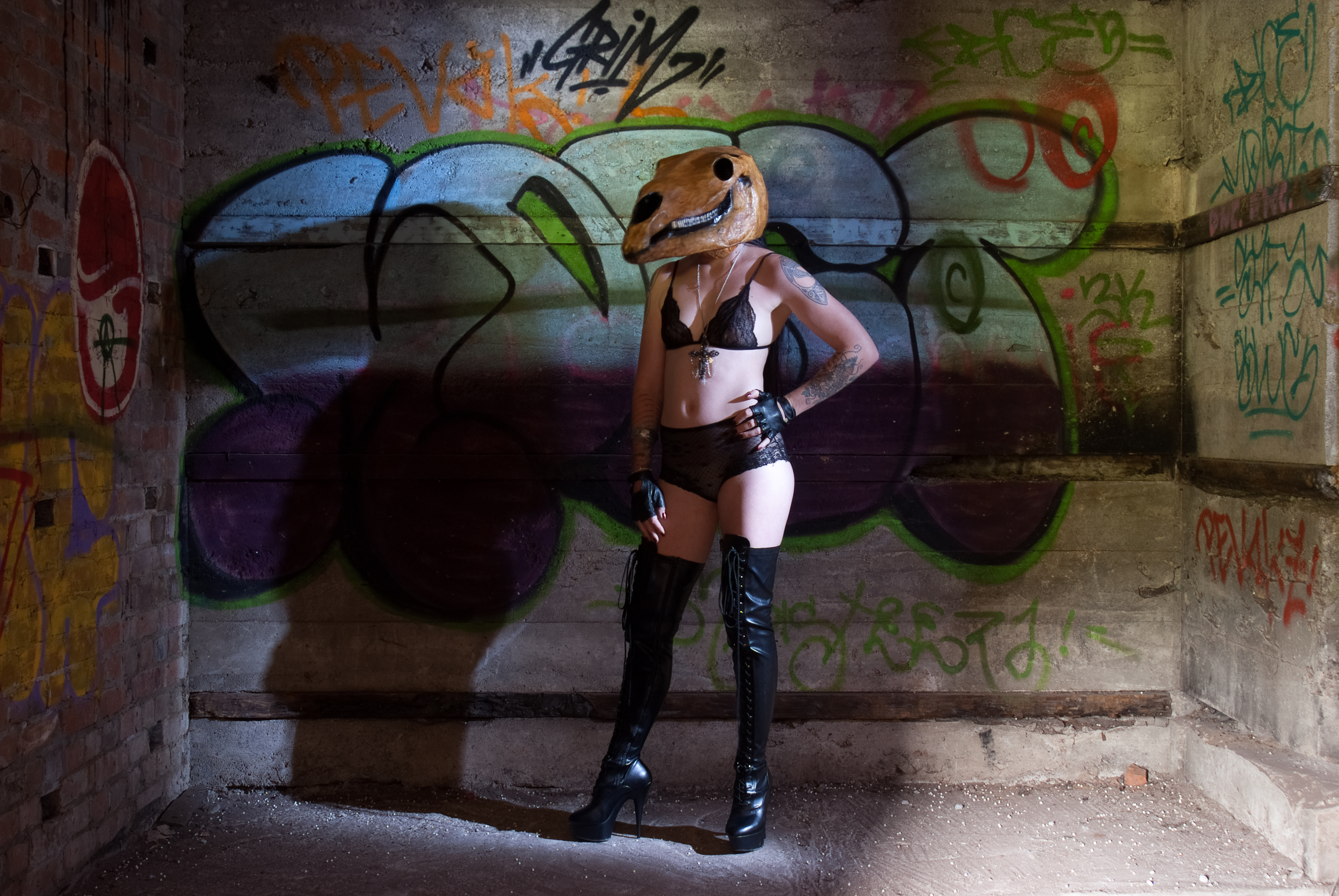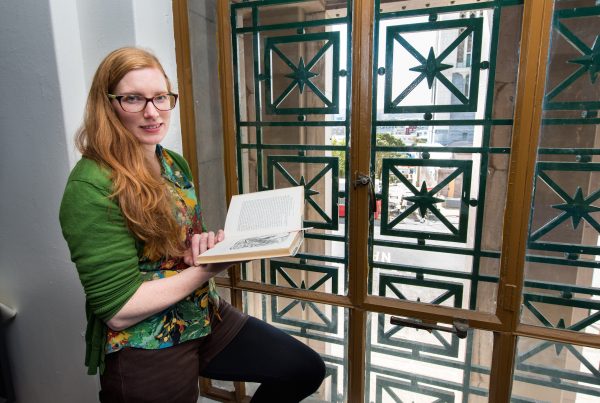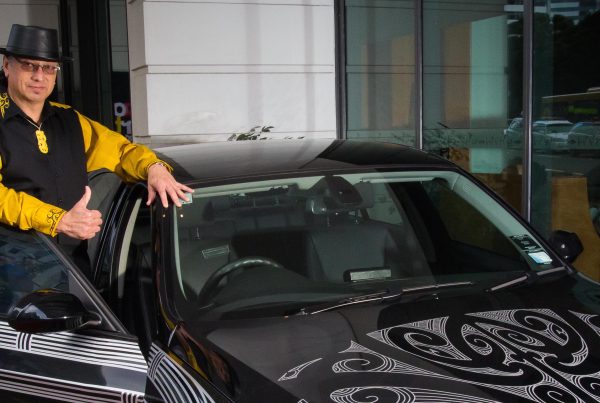
These provocative posters are all the work of Toothfish, the alter ego of an anonymous Wellington street artist turned environmental activist. Toothfish takes its name from the deepwater fish that are currently – and controversially – being harvested in the Ross Sea. But it maintains its anonymity by wearing something that closely, and unnervingly, resembles a mummified horse’s head. (Don’t ask why it’s not, well, a fish head. It’s a long story.)
Toothfish’s essential nature is not easy to pin down. The word from the horse’s mouth (as it were) is that Toothfish “prefers to think of itself not as a person or a group but as a thing. Toothfish can be everywhere or nowhere. Perhaps no one is Toothfish or everybody will be tomorrow?”
Fortunately, Toothfish is, for the purposes of this interview at least, a person, and one who has for the last three years been on what you might call a mission against God. “What prompted me was the Pope, the last Pope,” Toothfish says. “He condemned the movie Avatar, saying he thought it encouraged nature worship. Toothfish thought, ‘That’s [precisely] what we need.’” And so Toothfish, who was already “rabidly anti-capitalist”, set about making posters that would shock people into thinking about the environmental and political issues they had until then been blissfully ignoring.
The posters it created are full of confronting messages, perplexing images, or simply “the righteous gods of nature judging us,” Toothfish says. They urge us not to “set ourselves apart from nature”, and to “try to step up to being an animal”.
The posters are deliberately elliptic, a kind of teaser campaign for a more explicit message that will never come. And Toothfish knows how to tease your attention. Its latest effort is an online essay featuring semi-naked young things (wearing animal masks, naturally) playing about with the plastic junk that bespoils our beaches. “If I wrote an article about plastics, no one would read it,” Toothfish says. “It’s boring. A lot of the conservation groups’ propaganda is boring.”
The cause of conservation may, sadly, be a lost one. “We are so far gone. Part of me thinks there is no point.” But hope – or at least anger – springs eternal. “I like to think I’m going down fighting. I’m going to resist – and you can resist as well… All you can do, a lot of the time, is say you are resisting.”
The resistance is now global. Toothfish’s posters can be seen across cities and continents: in London, Paris, Munich, Brooklyn, the East, the West, the Pacific, Africa – even Antarctica. One has been snapped near St Basil’s Cathedral in Moscow; another has been photographed sitting at the sandy bottom of the Honduran sea, lying beside a bikini-clad snorkeller.
Though the posters are quintessential street art, they have spread this far thanks to their symbiotic relationship with the Internet, which allows the whole world to see them – and order copies. Each poster has, however, a print-run of just 700, Toothfish says. “After that, I try to stop sending it out. I say, ‘That’s it.’” Why 700? “Toothfish just likes that number.” Not that there’s anything stopping people from printing their own, of course. But this policy does help keep down costs (an important consideration, when you’re working “on the smell of nothing”).
In the end, Toothfish is a network, an idea, as much as anything else. But it’s also the ultimate solo vehicle. “I don’t like to go on protest marches,” Toothfish says. “I’m not really a group person. I’m more of a lone wolf.” Or, indeed, a sole fish.




